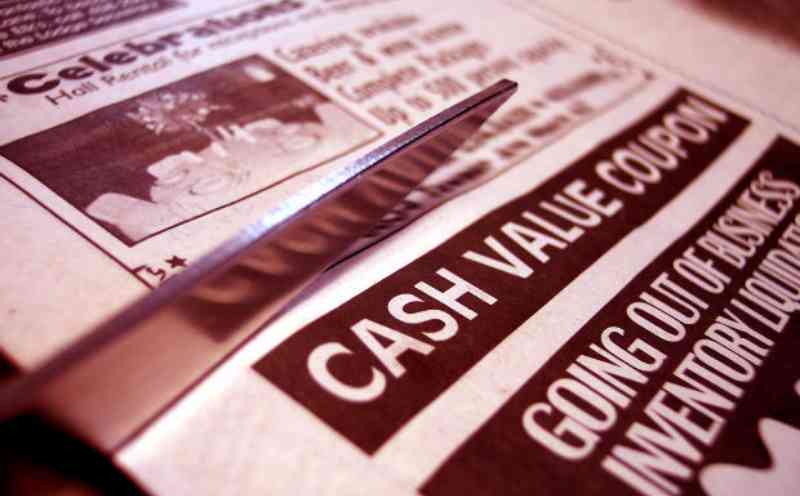Nobody wants the deal seeker, those customers who incessantly scope out the lowest prices and deepest discounts. They swoop in, take the deal, then leave, never to be heard from again. But should you give up entirely on this segment of consumers?
The Rise of the Deal Driven Consumer... And a Headache for Small Business Owners
Behind all the serious tech trends and passing fads, undeniable consumer realities and whims swirling around these days, there are two over-ridding trends that are happening concurrently:
1. A significant and growing segment of consumers are suffering from years of stalled wages, no employment, under-employment, cuts to consumer lines of credit and home equity, the threat, then realization of inflation, and an underlying economic and political insecurity... among other things. Frugal consumerism and bargain-hunting have become common place aided in part by a slew of online couponing and discount sites.
2. Many small business owners these days are in a preoccupied scramble to prop up sagging sales, gain loyal customers, and maximize their operations primarily through cost-cutting tactics- even as the cost of most commodities have risen taking a big bite out of their profit margins and major legislative initiatives, such as the health care overhaul, remain clouded in obscurity. Where growth is happening, it's happening very cautiously.
On the surface, these two consumer behavior trends would seem to be at odds with each other. Consumers are being more cost conscious and less committed at a time when small businesses need them the most. Out of desperation, many small business owners try to drum up business by wooing bargain-hunters with steep discounts. But the vast majority of the time, these efforts fail as these non-committal customers go as quickly as they came without so much as looking back.
The Delicate Balance of Running a Small Business in Trying Times
Successfully running a small business is a delicate balance, and under difficult economic conditions that balance becomes even finer. On one hand, you don't want to be pouring precious resources into people who will "take the money and run." You want your dollars and your efforts to give you the biggest return on investment, especially if your profit margins have been strained.
But at the same time, almost every person who actually walks in the door is a potential repeat customer (or at least some kind of word-of-mouth advertisement for your business) even if that person only came to take advantage of a particular discount. The challenge is knowing how to increase your chances of hooking these customers, while expending a minimal amount of additional resources.
How Your Small Business Can Turn Bargain-Hunting Customers into Loyal Customers
While every business owner ultimately has to take into consideration the specific details of his or her own situation, there are some common tips and themes to keep in mind when dealing with customers who have come in to take advantage of a bargain or promotion:
- Make sure your expectations are realistic. Keep in mind that those who come in for a deal often seem to have one-track minds, and they may be much harder to convert to loyal customers then those who come on their own or by a friend's recommendation. Expect that success rate will be lower; this will help to take some of the pressure off on your end. It may also help you to develop strategies to bring them back for more.
- Choose your discounts and promotions wisely. Don't choose discounts that will break the bank. Instead, look for ones with a perceived value, that will more naturally lead to additional sales (such as a value meal that leaves out a profitable drink option), and where you have a chance (and the space) to both create a good experience and the opening for a future relationship.
- Make sure you are adequately prepared for your promotion. This means doing some thinking and a little research before setting something in motion. Are you staffed enough to handle the excess traffic? Do you have enough equipment, products, and/or supplies? Also, don't forget to evaluate the experience afterward.
- Know your limits! If you are in touch with and believe in the value of your products and services, then there is no need to bend over backwards to please a customer who just doesn't get it, doesn't care, or even worse, is rude. It's never worth it.
- Your attitude makes a big impact. Following on the heels of the tips above, your attitude towards your chosen promotion and your deal-driven customers will significantly affect the success of your efforts. In an earlier post, I mentioned a study that linked the success of Groupon promotions with employee satisfaction. The most successful events (ie the ones that generated the most repeat customers and the biggest return on investment), were the ones where the positive attitude of the employees seemingly rubbed off on the customers, so much so that they bought additional items and/or came back to the business at a later date.
Bottom line: One of the most important things to keep in mind when dealing with discounts and promotions as well as the customers they attract, is that as much as money (and the savings of it) seems to be a major motivational factor, deep down, most customers are looking for experiences that make them feel good. Happy customers, even those deal seeking ones, are those in the best position to become loyal customers.
